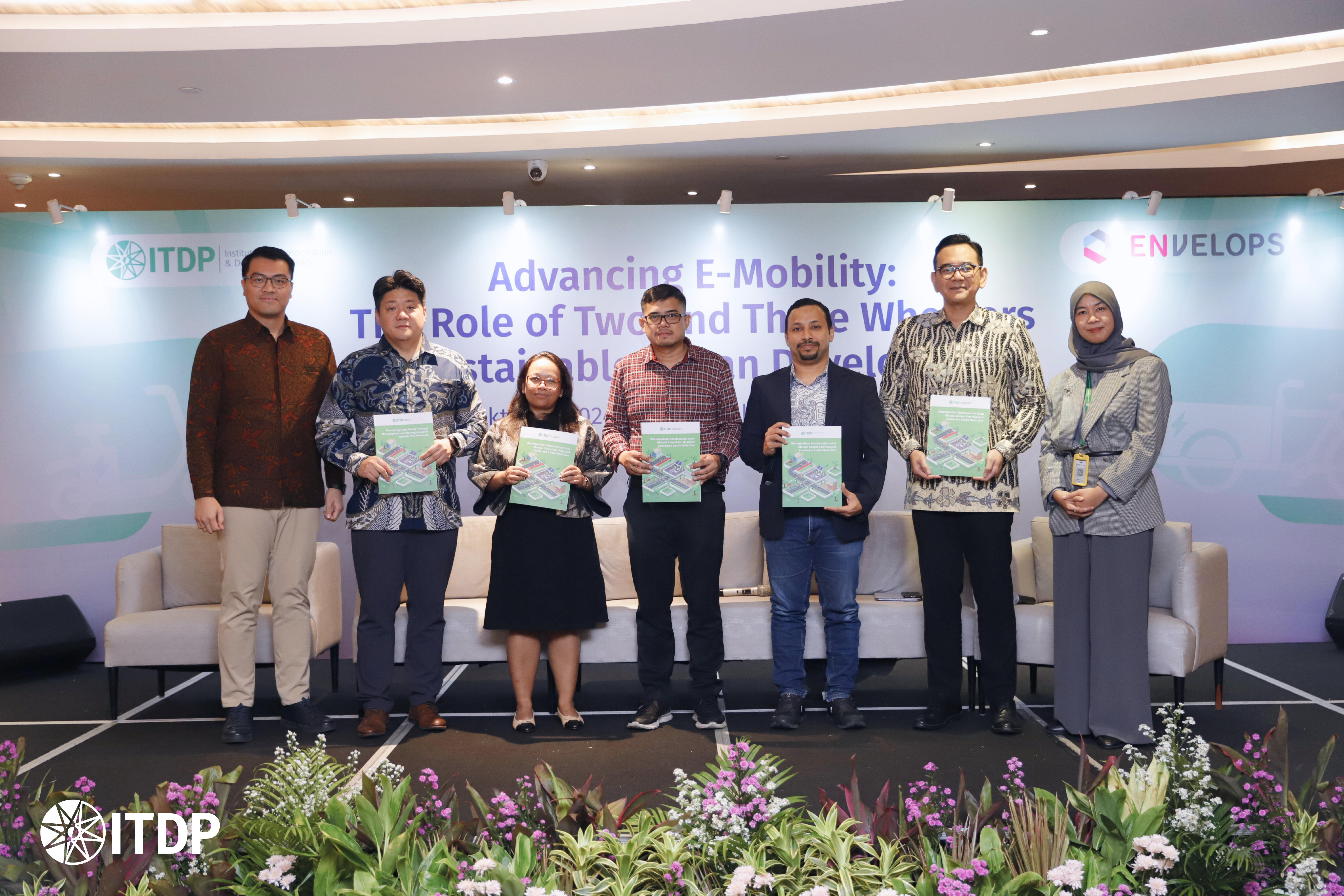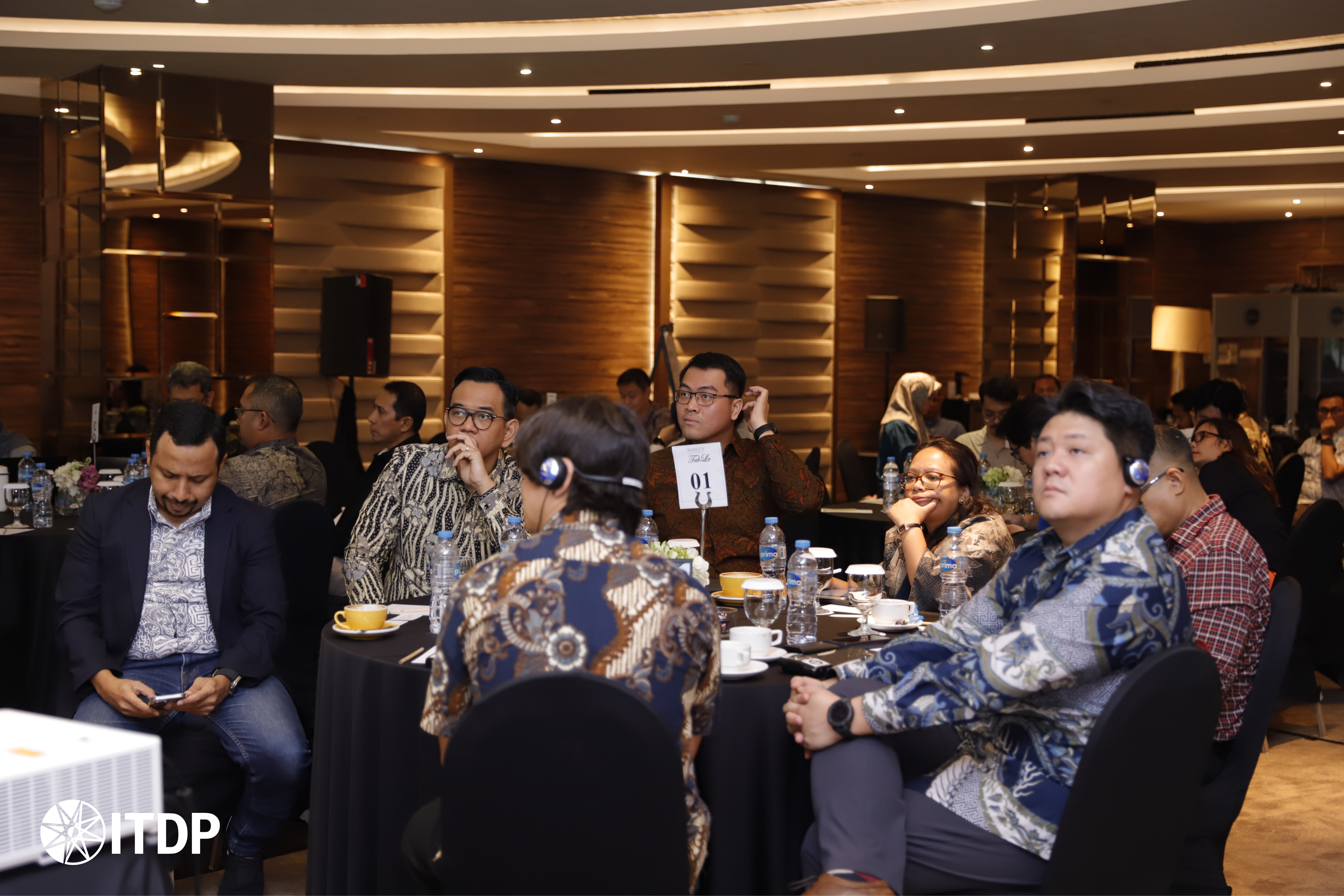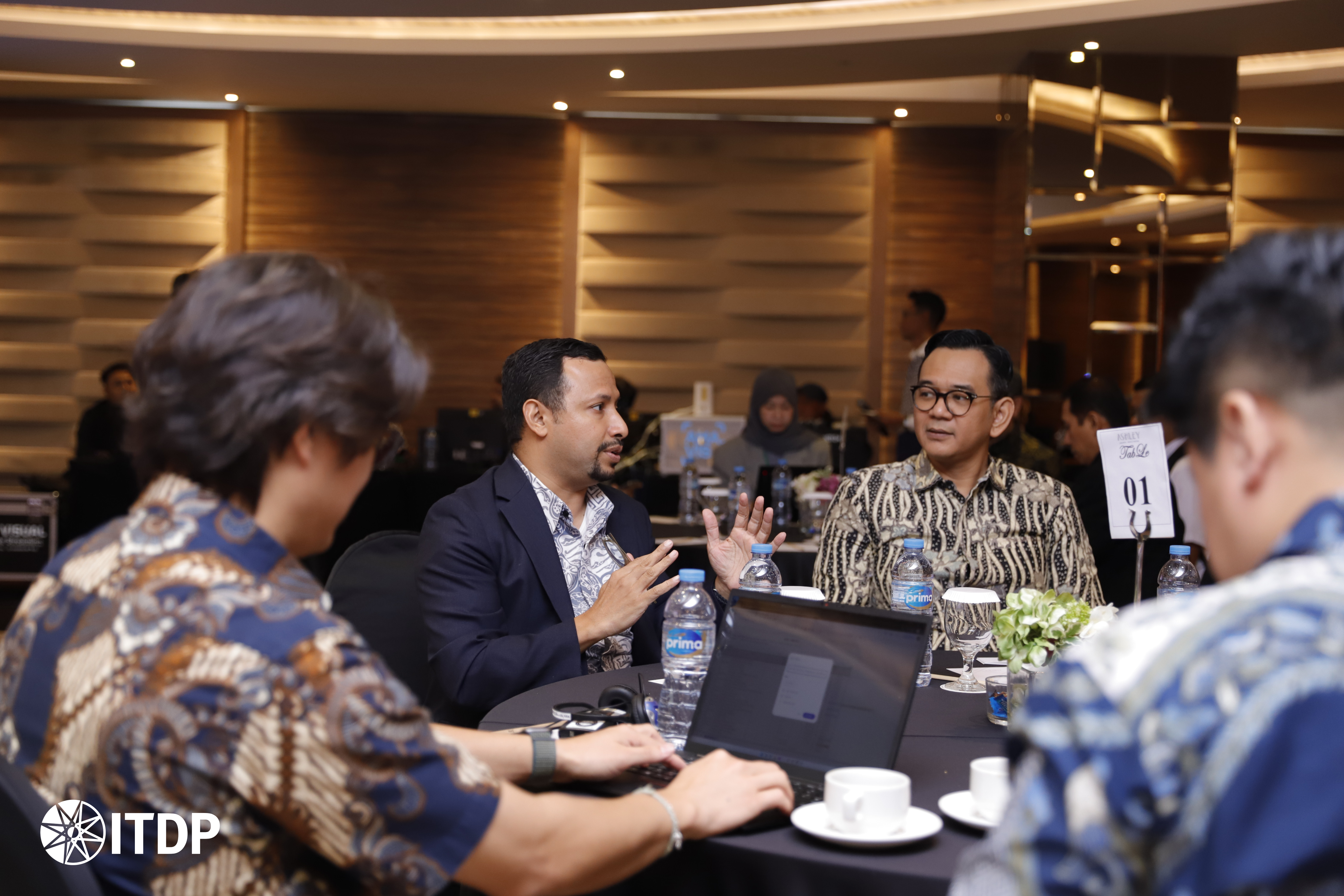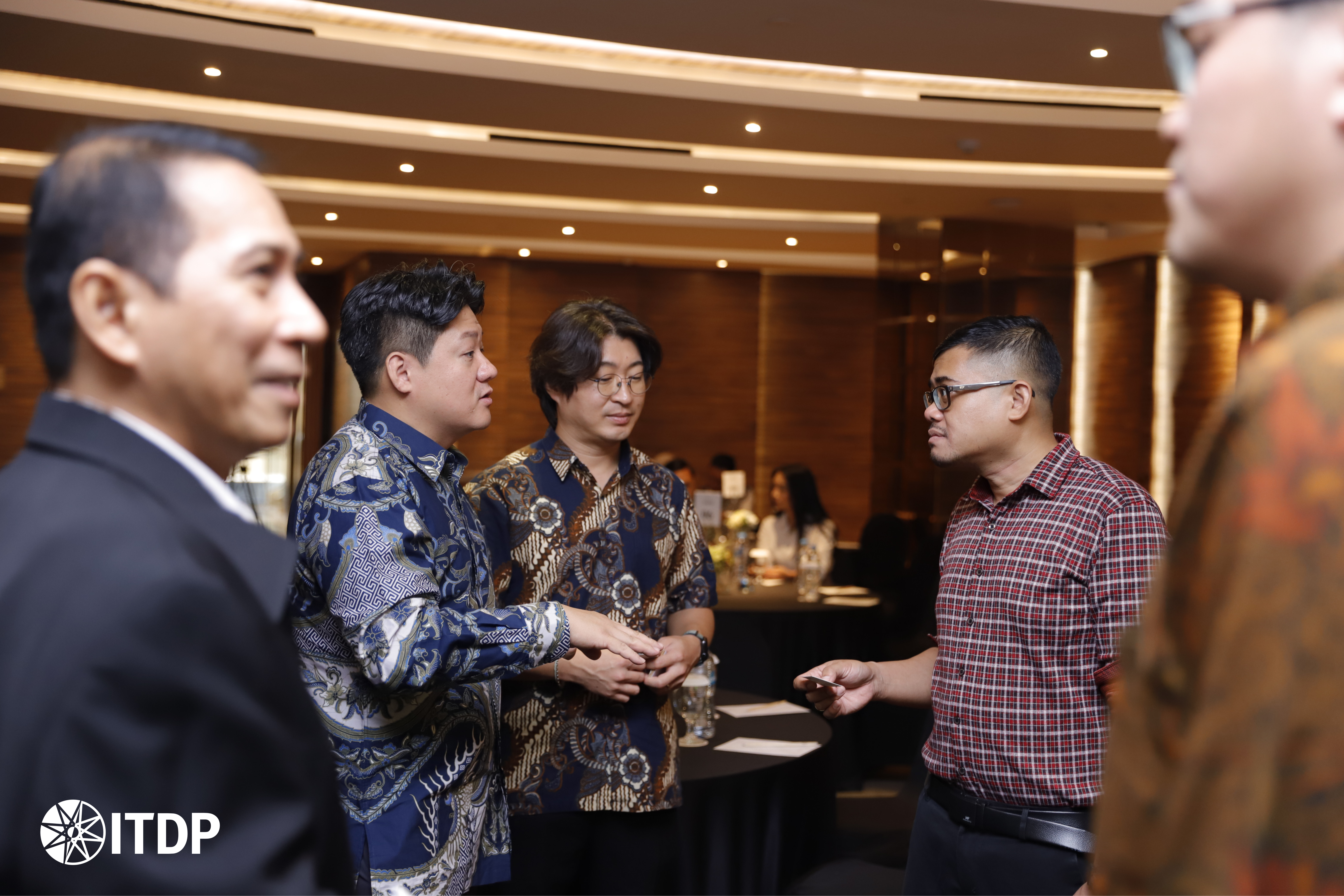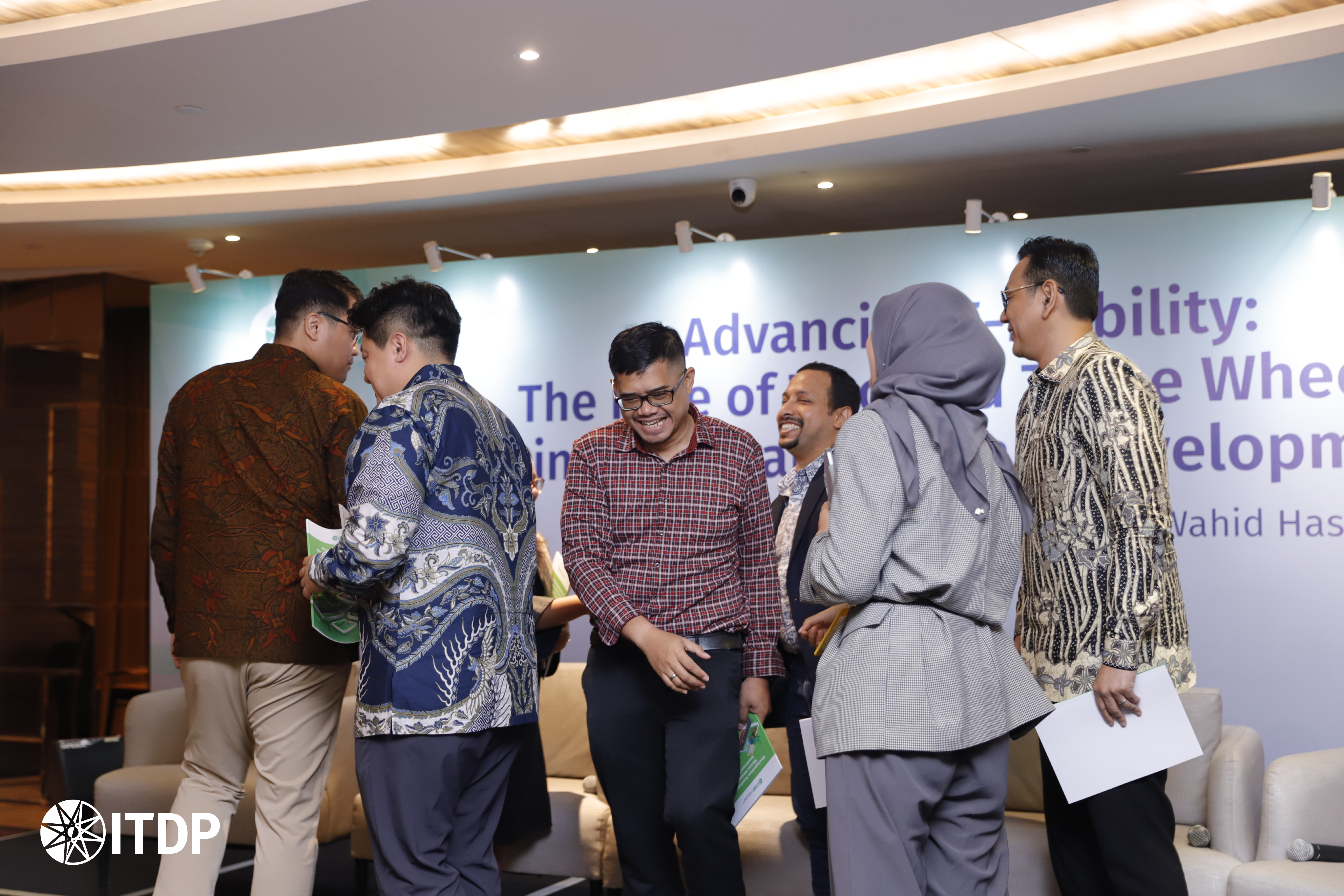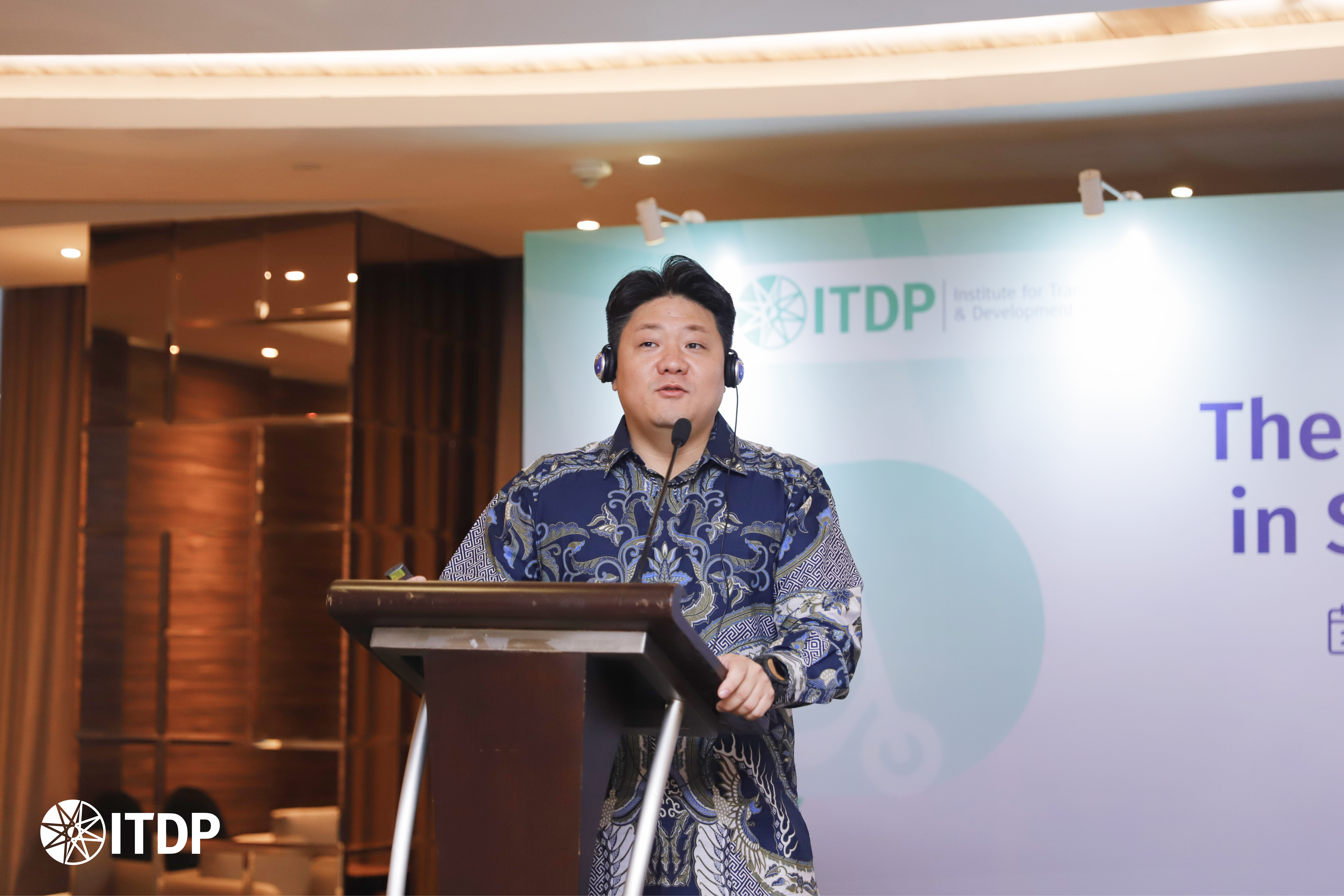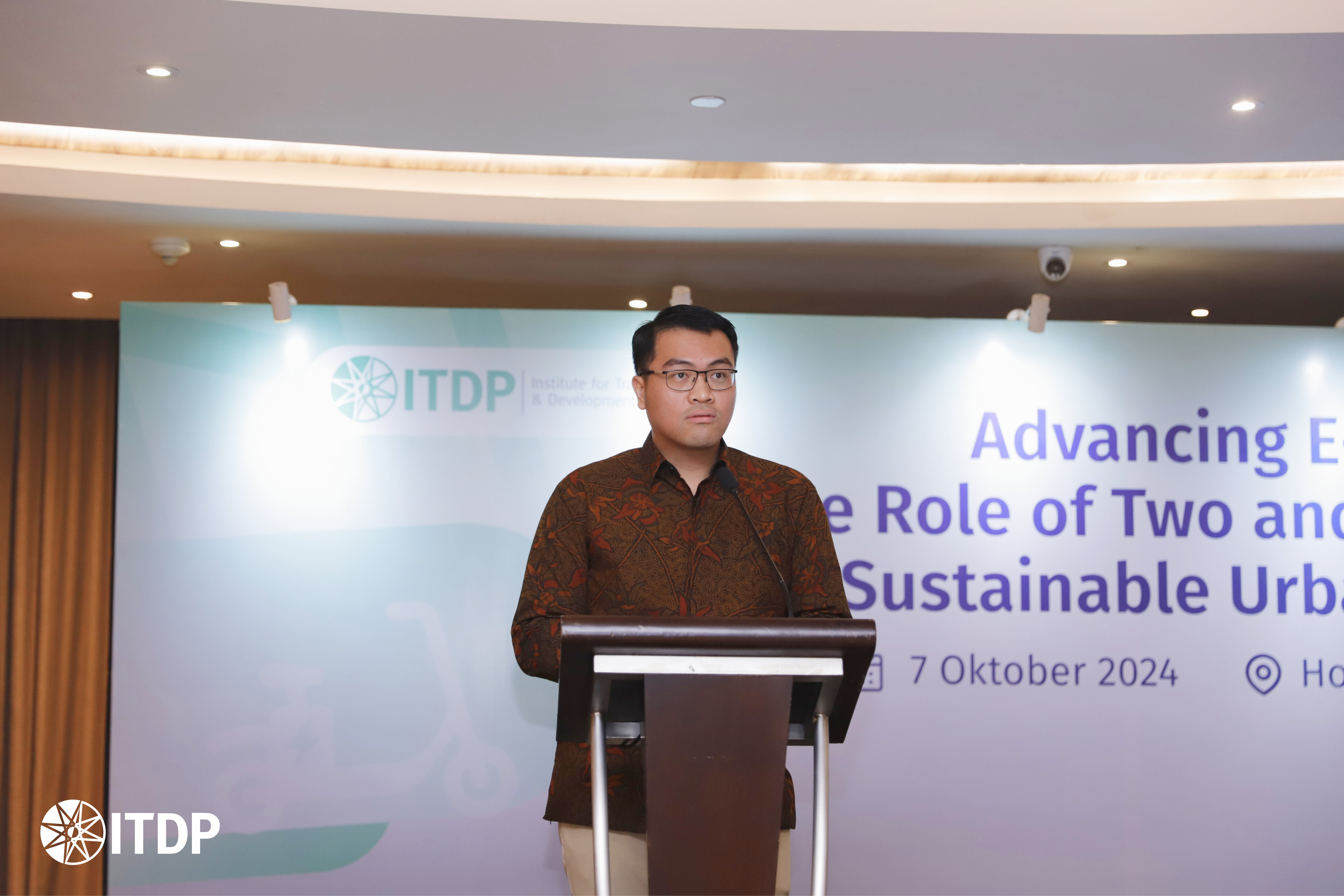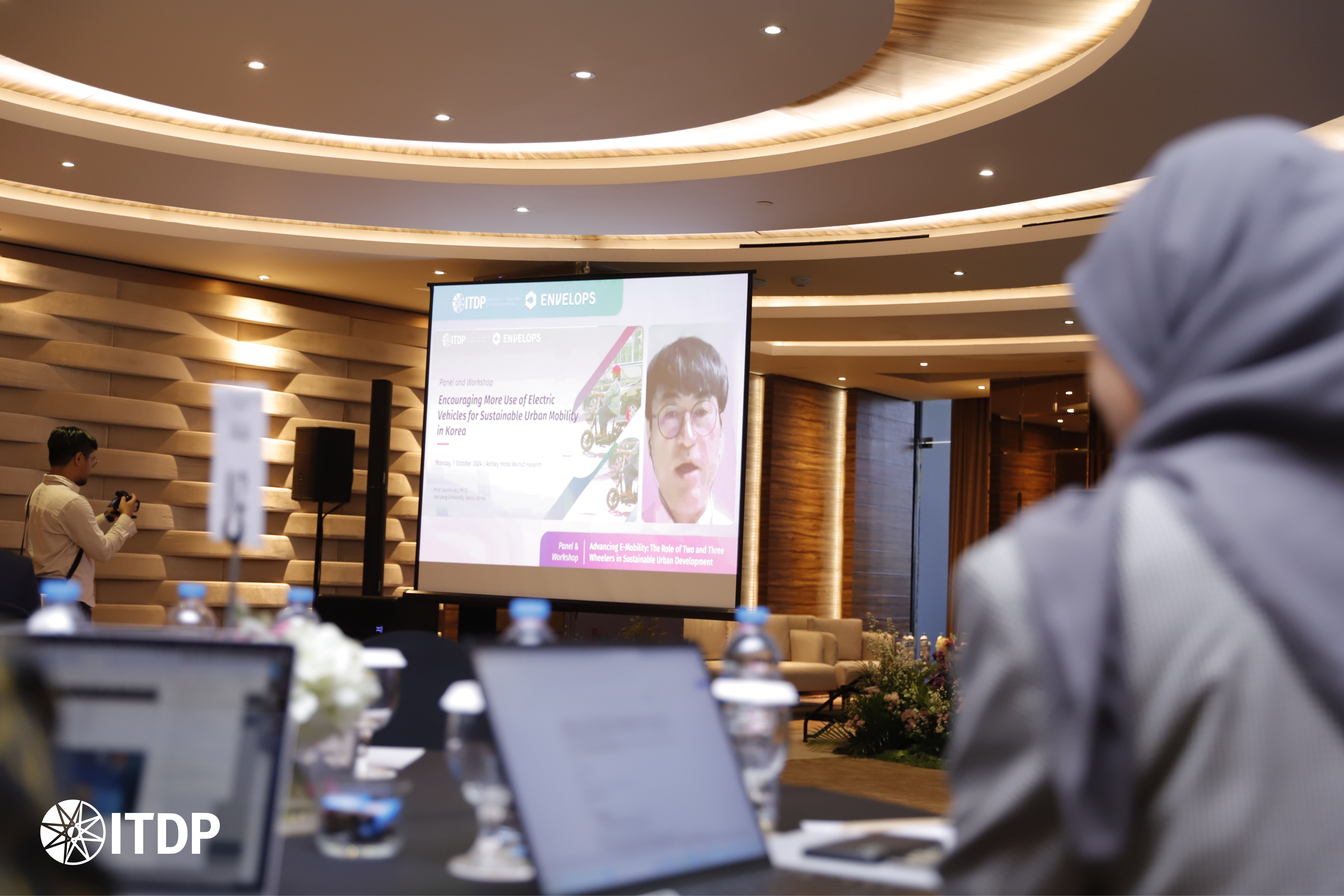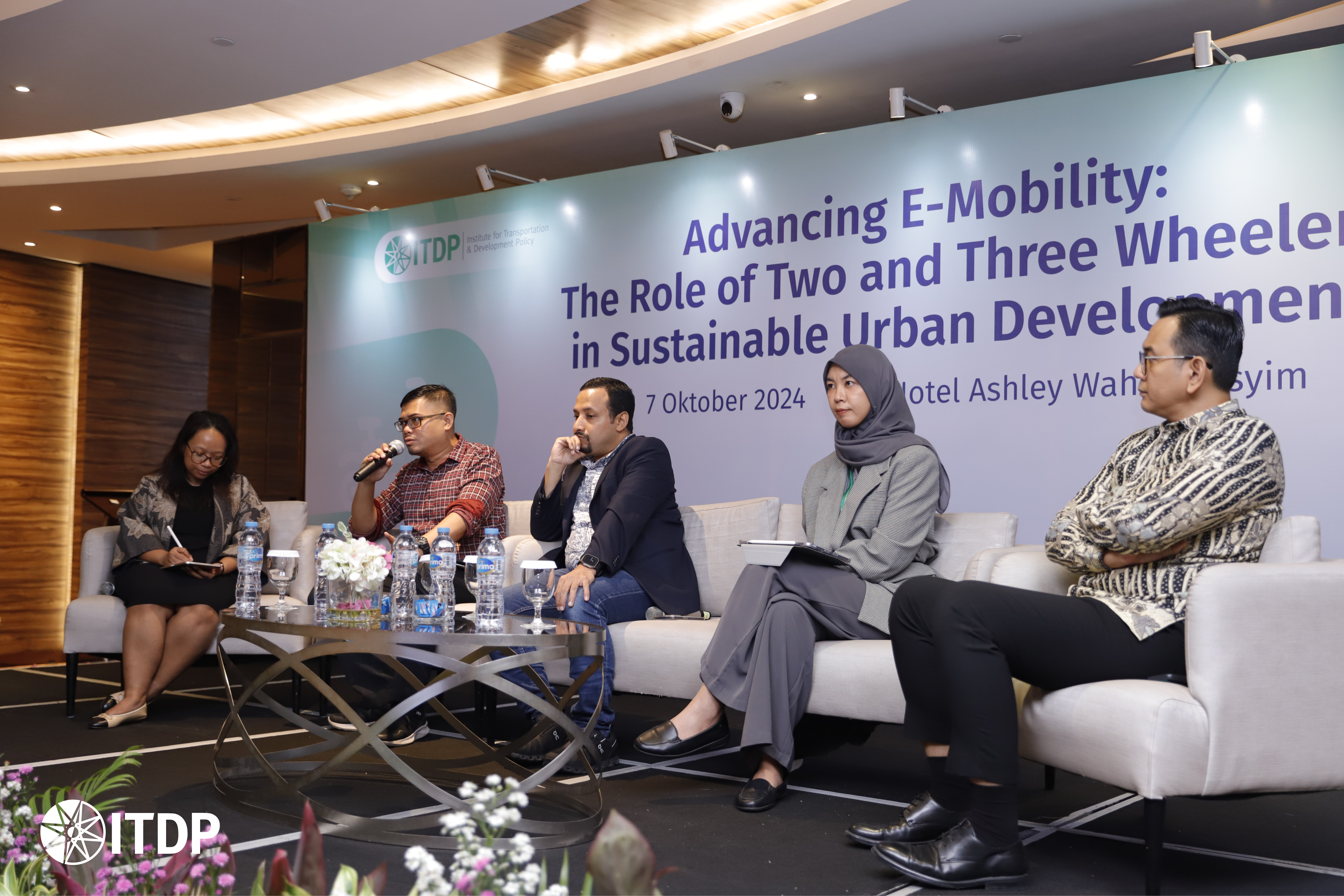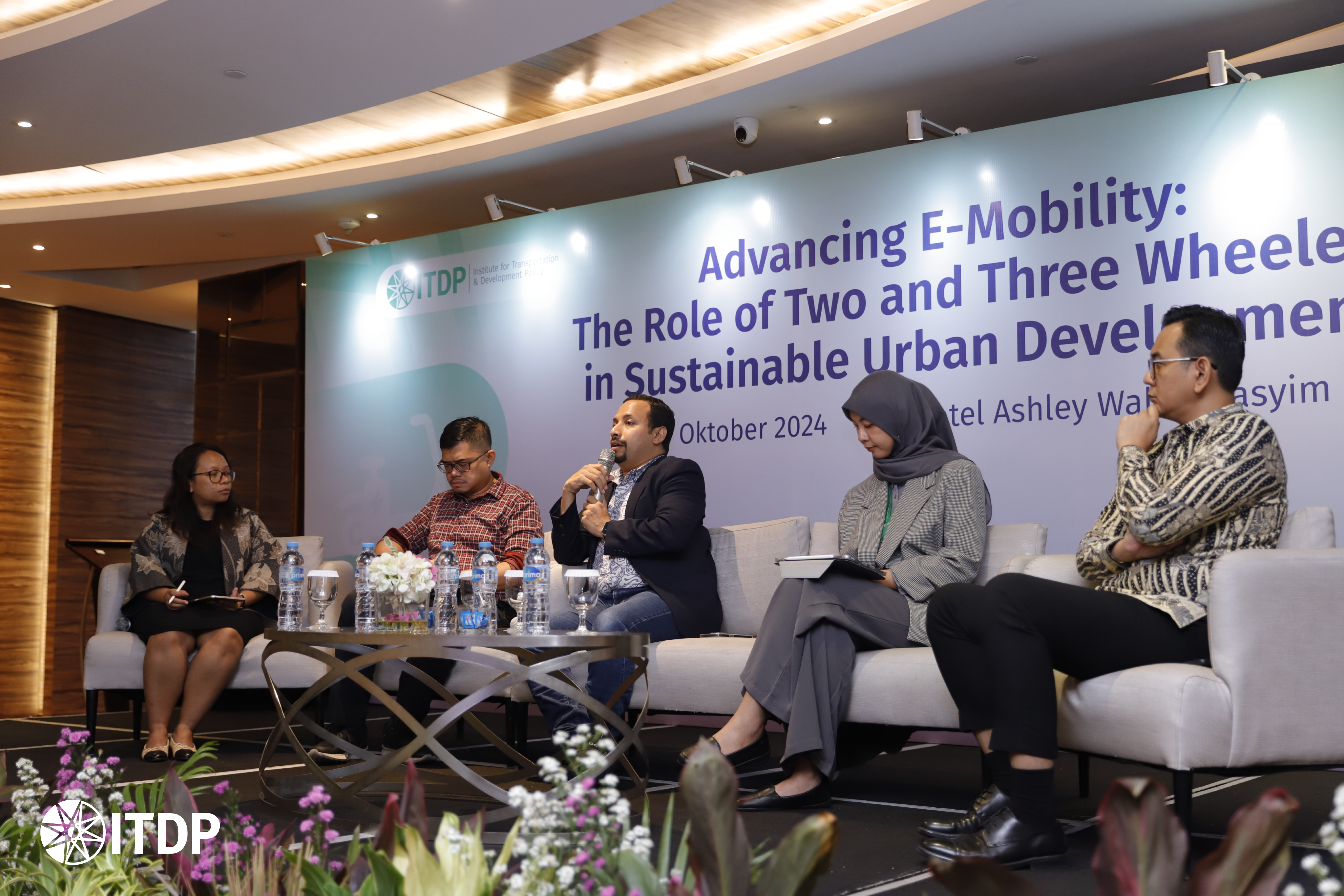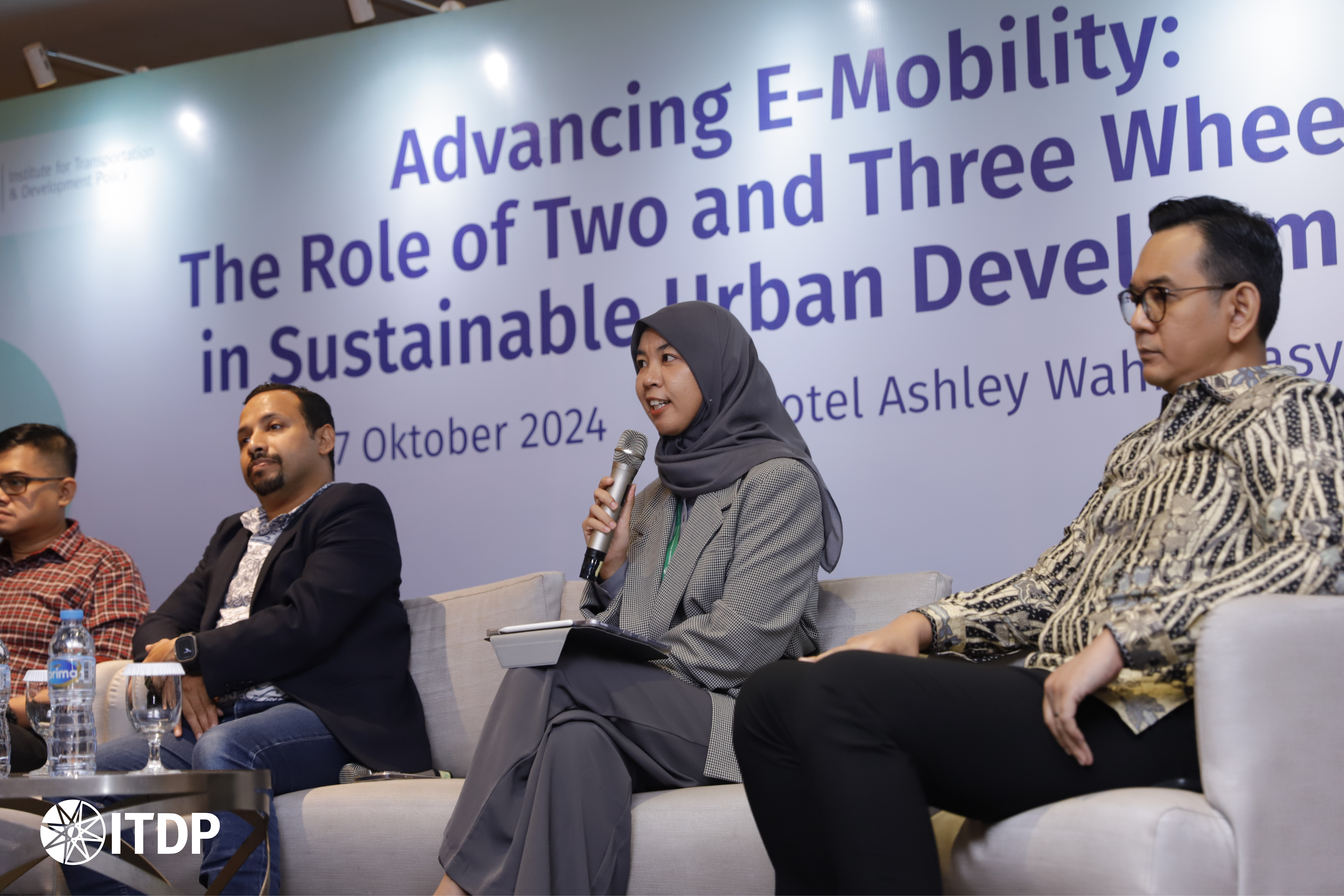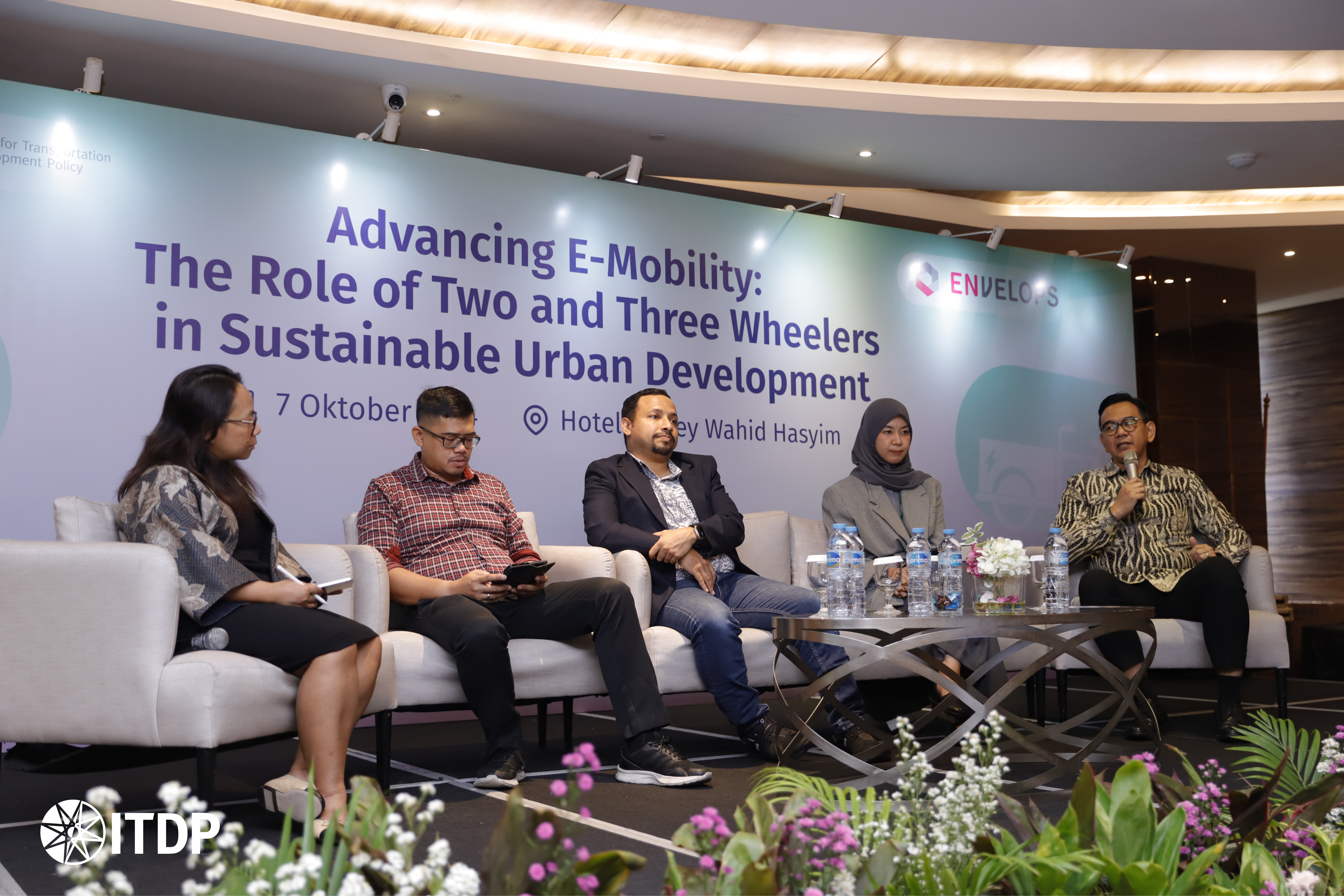October 11, 2024
Advancing E-Mobility: The Role of Two and Three Wheelers in Sustainable Urban Development
ITDP Indonesia, in collaboration with Envelops Co., Ltd., a South Korean think tank focused on conducting studies and providing technical assistance to mitigate the climate crisis in the energy sector for developing countries, organized an event titled “Advancing E-Mobility: The Role of Two and Three Wheelers in Sustainable Urban Development” on October 7, 2024, at Ashley Hotel Wahid Hasyim, Central Jakarta.
The event, which aimed to highlight the landscape, potential, and role of electric two- and three-wheelers in Indonesia’s sustainable and inclusive transportation, was attended by a diverse group of participants, including government representatives, energy companies, EV ecosystem stakeholders, ride-hailing services, logistics operators, mobility associations, and donors.
Kicking off the event, Han Seung Yeun, Director and Co-Founder of Envelops Co., Ltd., presented an overview of Envelops’ projects in Southeast Asia, particularly Indonesia. He explained that Envelops’ initiatives in Indonesia, sponsored by the Korean government and the Korean Energy Agency, focus on policy consulting roadmaps, masterplans, and capacity building for solar-powered electric motorcycles by developing business models and demonstration projects in Indonesia’s EV market.
Following Han’s opening presentation, Gonggomtua Sitanggang, Southeast Asia Director of ITDP, presented two ITDP Indonesia studies on E2/3W: Roadmap & Timetable for Two Wheelers Electrification in Greater Jakarta and Supporting E-Mobility Focusing on Electric Two and Three-Wheelers and Policies on Urban Traffic Integration in Indonesia. These studies were summarized in the document titled “Promoting Road Safety Through the Adoption and the Regulation of Electric Two-Wheelers,” which was highlighted as a policy recommendation for the event.
During his presentation, Gonggom emphasized the need for battery standardization, adequate charging infrastructure, and public education on the benefits of electric two-wheelers to accelerate adoption. He argued that electric two-wheelers could significantly improve road safety, particularly for children, if supported by proper regulation. “Electric two-wheelers have the potential to significantly boost road safety, which is why we advocate for clear regulations and vehicle classifications,” Gonggom explained.
The final opening presentation was delivered by Muh. Asrofi, a Senior Planner from the Ministry of National Development Planning (Bappenas), who discussed the national development priorities and the EV ecosystem in Indonesia. He noted that the adoption of electric vehicles is not only directed at private vehicles but also for public transportation and logistics, especially delivery services.
The main presentation was delivered by Joonho Ko, a professor of urban planning and transportation from Hanyang University, Seoul. His presentation, “Encouraging More Use of Electric Vehicles for Sustainable Urban Mobility in Korea,” showcased how South Korea is advancing electric motorcycle adoption through collaborations with delivery services, converting phone booths into battery-swapping stations, and providing subsidies for vulnerable groups. While range anxiety remains a challenge, Ko proposed battery standardization and increased incentives as solutions. He also underscored the importance of aligning electric motorcycle programs with the social context of each country. “I suggest that we should create the best applicable e-motorcycle program considering the context of our society,” Ko stated.
The event also featured a panel discussion titled “Unlocking Electric Two and Three Wheelers Adoption Potential in Indonesia,” moderated by Ririn Radiawati Kusuma, Director of Indonesia Clean Air Asia. The panel featured key stakeholders, including Arianto Wibowo, Head of the Manufacturing Industry and Electric Vehicle Division Coordinating Ministry for Maritime and Investment Affairs (CMMIA); Abdullah Alwi, Executive Secretary of AISMOLI; Anugraha Dezmercoledi, Executive Director of AEML; Deliani Siregar, Urban Planning and Inclusivity Manager of ITDP Indonesia; and Professor Joonho Ko from Hanyang University.
The panel discussion highlighted the implementation of Presidential Regulation 55/2019 on electric vehicle adoption in Indonesia, the importance of infrastructure and technical standards, and the role of electric two-wheelers in providing inclusive transport for vulnerable groups. Other topics included supply chain localization, government incentives to boost market penetration, behavior analysis to understand how electric two-wheelers can be adopted more widely in Indonesia, and South Korea’s approach to promoting electric vehicles, particularly motorcycles, through fiscal incentives and consideration of societal demands and needs.
The event concluded with a Q&A session, after which Gonggomtua Sitanggang formally handed over the “Promoting Road Safety Through the Adoption and the Regulation of Electric Two-Wheelers” document to the panelists, symbolizing the collaboration between the government, industry, and academia in building a sustainable electric vehicle ecosystem in Indonesia.
Download the presentation materials here.
Catch the re-run on ITDP Indonesia’s Youtube channel.

